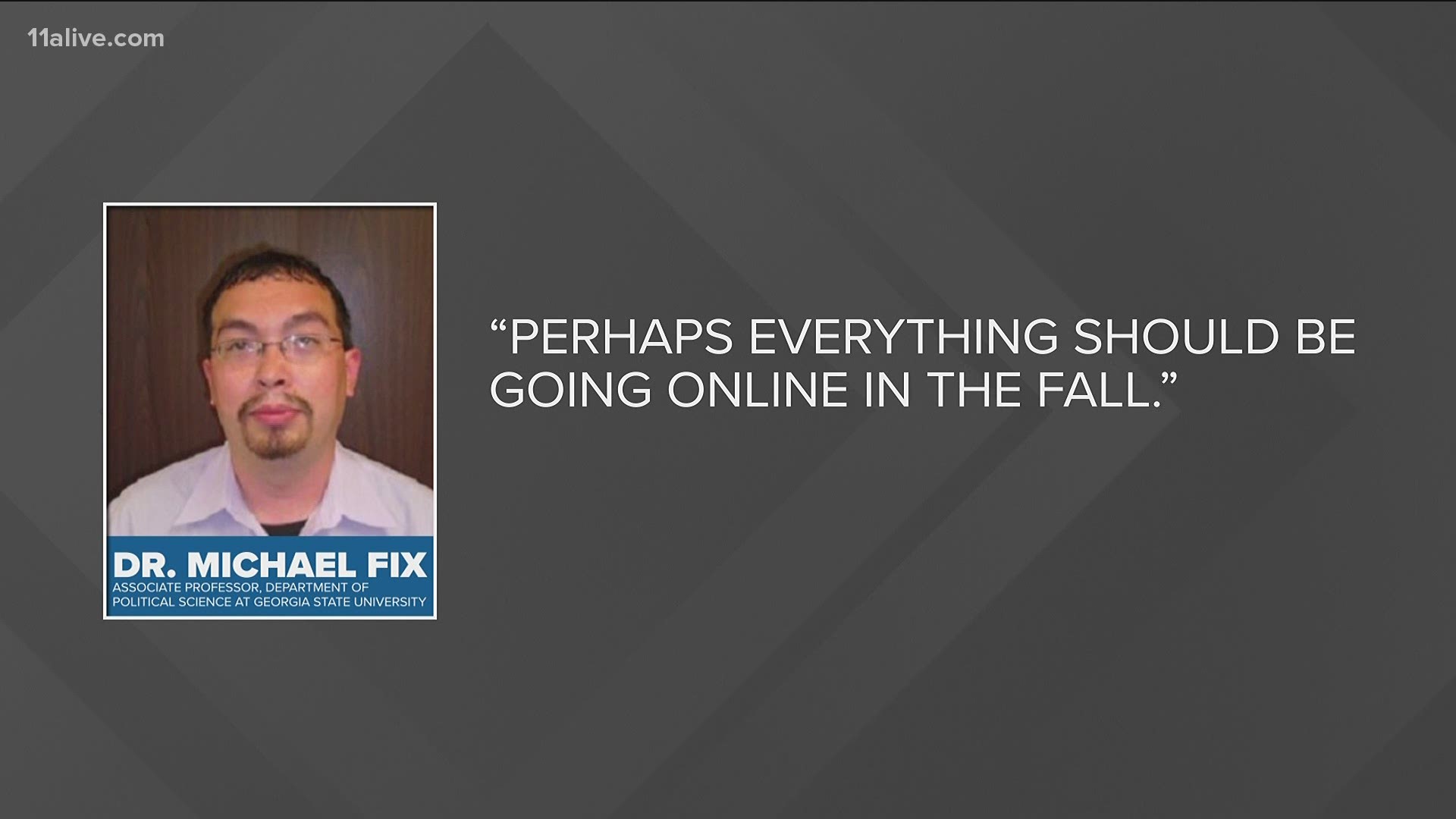ATLANTA — When the Trump Administration announced a new rule that students on F-1 and M-1 visas have to take at least some classes in-person or be sent home, educators started to speak out.
One of them was Dr. Micheal Fix, an associate professor of political science at Georgia State University.
He tweeted that if any international students felt they couldn't meet the in-person requirement, he would offer an independent study course just for them.
"A lot of classes are moving online, so I worried, what if there are students out there who can't fill their schedule in such a way that it meets these new requirements?" Fix said. "I can't change policy, but at least there's a little, small thing I could do that could maybe provide a solution for a small number of students who would be harmed by this policy.
"I try to think how would I feel if I was in their situation right now? And I would be afraid," he said. "They're here for this education and now they're being threatened with losing that over circumstances that are out of their control."
Fix said putting together an online class is four times as hard as teaching in person. But, there is a public health crisis that people need to take into account.
"This is obviously happening out of necessity. Based on the recommendations from public health officials and epidemiologists, perhaps everything should be going online in the fall," Dr. Fix said.
The University System of Georgia welcomes more than 13,000 international student each year, according to its website.
"It just seems like the whole thing is motivated by animus towards both our immigrant population here in the U.S. and toward higher education in general," Fix said.
He said he is hoping for an injunction against the policy in court. Several schools have filed lawsuits to fight it, including Harvard and the Massachusetts Institute of Technology. The state of California is also suing the Trump administration.
Emory University also sent a statement to 11Alive opposing the rule.
"This preliminary guidance sends a message that international students are unwelcome. It has severe, negative implications based on local pandemic conditions and whether an institution offers classes in-person, online, or both, forcing our international students to make difficult decisions, disrupting their educational programs in the midst of a pandemic that has brought its own set of challenges," the statement read.
OTHER HEADLINES

